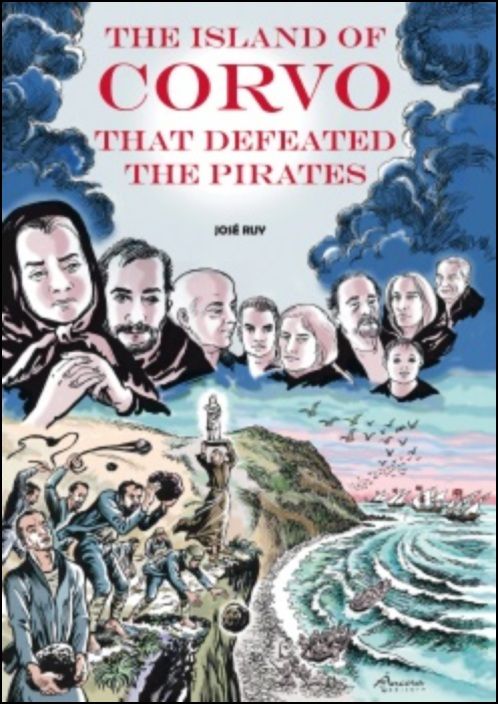
Poderá gostar
Detalhes do Produto
- Editora: Âncora Editora
- Categorias:
- Ano: 2018
- ISBN: 9789727806546
Sinopse
"The Island of Corvo that defeated the Pirates" was conceived in a process of participatory creation without precedents for either the author or the community which it focuses. Located on the western extremity of the archipelago, the island of Corvo was, for a long period of time, in the aim of the pirates and corsairs navigating those waters, which gave rise to episodes of conflict, and curiously, some relations of proximity. Based on an historical document from the 17th century narrating the resistance from Corvinos to a pirate attack, José Ruy imagined a story that integrated contributions from the people of corvo, becoming a shared adventure that raises awareness to the appreciation of local culture and heritage. Having been created within the Ecomuseu do Corvo project, the fundamental principle of ecomuseological action was followed: ensure the effective participation from the Corvinos in the creative process of the work, becominf themselves also protagonists. The most suitable strategy found to materialize this was to bring the author to the island where he had the opportunity to know the people and the place as well as get directly in touch with local culture. this way, he received numerous diverse contributions from the community to the developmental of the story, which was also followed by a scientific body. This is an example of how the heritage of a community can be seen as a developmental resource for the affirmation of identity and bond to the territory, to its origins and culture, while keeping the involvement of the community an omnipresent preoccupation. Indeed, there can only exist an ecomuseum when people and the organizations of a community participate in a dynamic process through which they preserve, interpret and manage their heritage for a sustainable development.
Ler mais